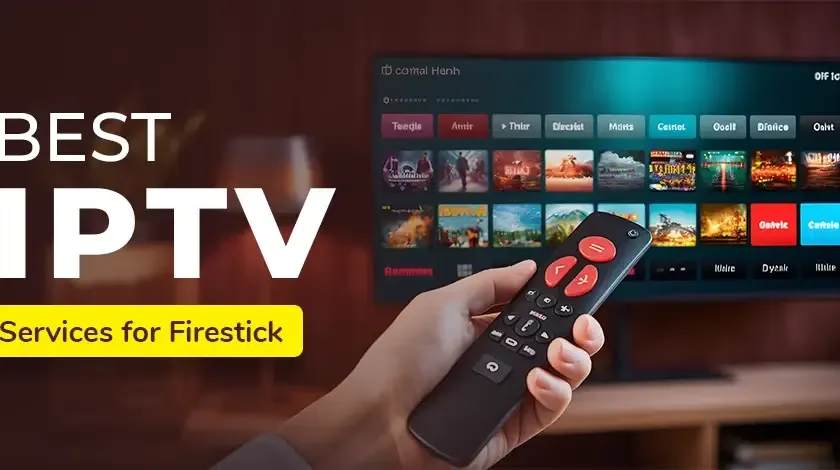In recent years, the way we consume television has undergone a significant transformation, largely driven by advancements in technology and changing consumer preferences. One of the most notable developments in this landscape is Internet Protocol Television (IPTV), which is revolutionizing how viewers access and enjoy content. This article explores what iptv nederland is, its benefits, challenges, and the future it holds for the entertainment industry.
What is IPTV?
Internet Protocol Television (IPTV) refers to the delivery of television content over the Internet rather than through traditional satellite or cable formats. Instead of using radio waves to transmit signals, IPTV uses Internet Protocol (IP) to stream content directly to users. This technology allows for a more flexible and interactive viewing experience, enabling users to watch live TV, on-demand content, and even engage with interactive features.
IPTV can be divided into three main categories:
- Live IPTV: This provides real-time streaming of television channels, similar to traditional broadcasting.
- Video on Demand (VOD): This allows users to choose and watch content at their convenience from a vast library of shows, movies, and other programming.
- Time-shifted TV: This feature enables viewers to watch previously aired content, giving them the flexibility to watch shows at their convenience.
Benefits of IPTV
- Flexibility and Convenience: One of the most significant advantages of IPTV is the ability to watch content on multiple devices, including smart TVs, smartphones, tablets, and computers. This means that users can enjoy their favorite shows and movies anytime, anywhere, as long as they have an internet connection.
- Interactive Features: IPTV often comes with enhanced features such as interactive menus, catch-up TV, and the ability to pause or rewind live television. These interactive capabilities significantly enhance the viewer experience, allowing for more personalized content consumption.
- Cost-Effectiveness: Many IPTV services offer competitive pricing compared to traditional cable packages. By allowing users to select only the channels they want, IPTV can help reduce costs associated with unnecessary subscriptions.
- Content Variety: IPTV platforms typically provide access to a wider array of content, including niche channels, international programming, and user-generated content. This variety caters to diverse viewer preferences, ensuring that everyone can find something they enjoy.
- High-Quality Streaming: With the evolution of high-speed internet, IPTV can deliver high-definition (HD) and even ultra-high-definition (UHD) content, providing a superior viewing experience compared to traditional broadcasting methods.
Challenges of IPTV
While IPTV offers numerous advantages, it also faces several challenges:
- Internet Dependence: The quality of IPTV streaming is directly tied to internet speed and reliability. Users in areas with slow or unstable internet connections may experience buffering and degraded video quality.
- Content Licensing and Regulations: IPTV providers must navigate complex licensing agreements and regulations related to content distribution. This can limit the availability of certain channels and programming, particularly for international viewers.
- Security Concerns: IPTV services can be susceptible to hacking and piracy, leading to concerns about content protection and user privacy. Providers must implement robust security measures to safeguard their platforms and user data.
- Market Competition: As more companies enter the IPTV space, competition increases, potentially leading to market saturation. IPTV providers must continuously innovate and improve their offerings to stand out.
The Future of IPTV
As technology continues to evolve, the future of IPTV looks promising. With advancements in streaming technology, 5G networks, and the rise of smart devices, IPTV is set to become even more integrated into our daily lives.
The demand for personalized content is on the rise, and IPTV can deliver customized viewing experiences tailored to individual preferences. Furthermore, as more consumers shift away from traditional cable subscriptions, IPTV is likely to capture an even larger market share.
The integration of artificial intelligence (AI) and machine learning into IPTV platforms can also enhance user experiences. By analyzing viewing habits and preferences, these technologies can recommend content, curate playlists, and even help users discover new shows that align with their interests.
Conclusion
IPTV is reshaping the way we consume television, offering unprecedented flexibility, interactivity, and variety. While it faces challenges such as internet dependence and content regulations, its benefits and potential for growth position it as a key player in the future of entertainment. As technology continues to advance, IPTV will likely become the preferred method of viewing for an increasing number of consumers, marking a significant shift in the television landscape.

